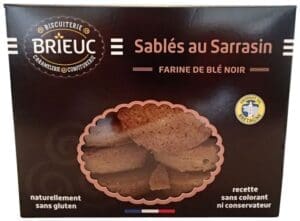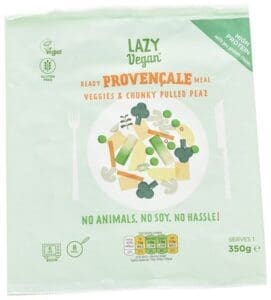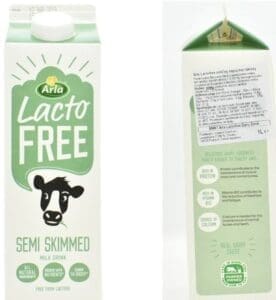Avoiding food allergens and ingredients linked to intolerances (such as dairy, lactose or soya) is quite common in Europe, especially among younger consumers. And there has been a steady increase in the number of free-from claims in European food and drink launches between 2014 and 2019. The percentage of food and drink launches featuring low/no/reduced allergen claims has increased from 12% in April 2014-March 2015 to 16% in April 2018-March 2019, according to Mintel Global New Products Database (GNPD).
Consumer demand for free-from food and drink could boost demand for ingredients that are compatible with free-from claims. Brieuc Sablés au Sarrasin (Buckwheat Shortbread Biscuits) from France, for example, is gluten free made with buckwheat flour and not rice flour that is the typical base of gluten free bakery products:

Products are coming to market that feature multiple free-from claims, which highlights consumers’ interests in free-from diets and free-from products. The Lazy Vegan Ready Provencale Meal Veggies & Chunky Pulled Peaz prepared meal, for instance, is free from gluten, dairy, egg, meat, soy and all 14 EU food allergens:

FODMAP – the emerging free-from diet
With gut health getting more focus, a low-FODMAP (Fermentable Oligosaccharides, Disaccharides, Monosaccharides, and Polyols) diet could emerge as a dietary solution to manage digestive-health issues. The diet was originally designed to help irritable bowel syndrome (IBS) sufferers manage their symptoms by reducing bowel irritation.
FODMAP launches are very scarce at present – especially in Europe, though they are currently more common in Australia and New Zealand.
One such product available in Europe is Arla’s Lactofree Mlécný Nápoj bez Laktózy (Semi Skimmed Milk Drink) in the Czech Republic, which features the ‘FODMAP friendly’ logo:

What’s driving from free-from diets?
Apart from food allergies or intolerances, other factors are boosting the popularity of free-from food and drink.
Consumers choose to avoid food allergens or ingredients linked to food intolerances because they believe it is better for their overall health.
Some consumers look beyond health, to other reasons, such as ethics. Soy’s link to genetic modification is an example of where consumers cite ‘other reasons’ (beyond health) as why they avoid soy.
In France and Germany, more consumers avoid dairy as part of a general healthy lifestyle and other reasons, than due to a food allergy/intolerance. While more consumers in France, Germany, Italy and Poland say they avoid gluten because of a healthy lifestyle, than a food allergy/intolerance.
…But stricter elimination diets healthy lifestyle diets have been questioned by health authorities.
The British Medical Journal Review found the promotion of gluten-free diets among people without coeliac disease should not be encouraged. While the National Osteoporosis Society say that ‘clean eating’ is sometimes taken to extreme, with complete food groups being eliminated and this risks people missing out on the nutrients that our bones need.
Free From Food Expo 2019
Join Emma Schofield, Mintel’s Senior Analyst – Global Food Science, at Free From Food Expo in Barcelona, where she’ll be speaking at two sessions discussing the future of clean label and trends in free from diets on the 28th and 29th May 2019.








































